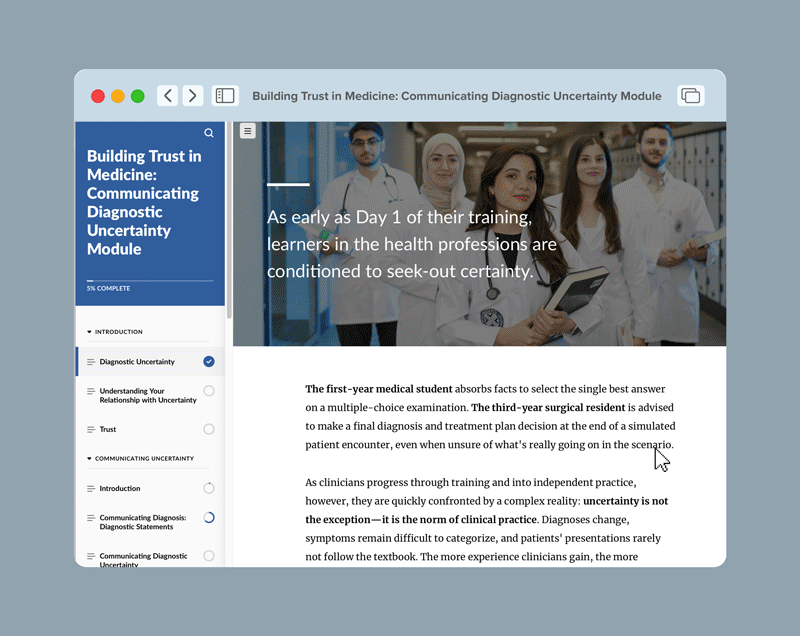Uncertainty is a routine part of clinical care—but it can be difficult to talk about, especially when patients are expecting a clear answer.
This module was developed by Thomas Jefferson University, University of California San Francisco and Deakin University as part of the Building Trustworthiness by Addressing Uncertainty in Medicine Grant Program, created to help clinicians thoughtfully embrace and communicate clinical uncertainty in ways that build trust.
Purpose of the Learning Module
In this module, we use the context of diagnostic uncertainty to focus on communication strategies clinicians can use to convey uncertainty and explore how these strategies may impact patient trust.
We begin by looking at the intersection of uncertainty and trust, then examine how clinicians can communicate clearly when a diagnosis is uncertain—both to patients and to one another. We conclude by considering how this plays out during transitions in care, when communication is critical and trust can be fragile.
Each section breaks down essential components of uncertainty communication and offers tools and approaches you can apply in practice.
Learning Module Structure and Approach
The Communicating Diagnostic Uncertainty in Medicine Learning Module is structured to combine interactive case studies, reflective exercises, and evidence-based teaching strategies. The content is delivered as an online self-paced course that is evidence-based and available to all, including learners in the health professions.
How to Access the Module
This module is freely available at: https://academiccommons.jefferson.edu/resources/building-trust-in-medicine-communicating-diagnostic-uncertainty-module/
If you have questions or would like to continue the conversation, please feel free to reach out to any of our faculty leads directly:
Dimitrios Papanagnou, MD, EdD, MPH: Dimitrios.Papanagnou@jefferson.edu
Lekshmi Santhosh, MD, MAEd: Lekshmi.Santhosh@ucsf.edu
Mary Dahm, PhD, MA: mary.dahm@deakin.edu.au
Funding Acknowledgment
This project is funded by the ABIM Foundation, the Josiah Macy Jr. Foundation, and the Gordon and Betty Moore Foundation.


